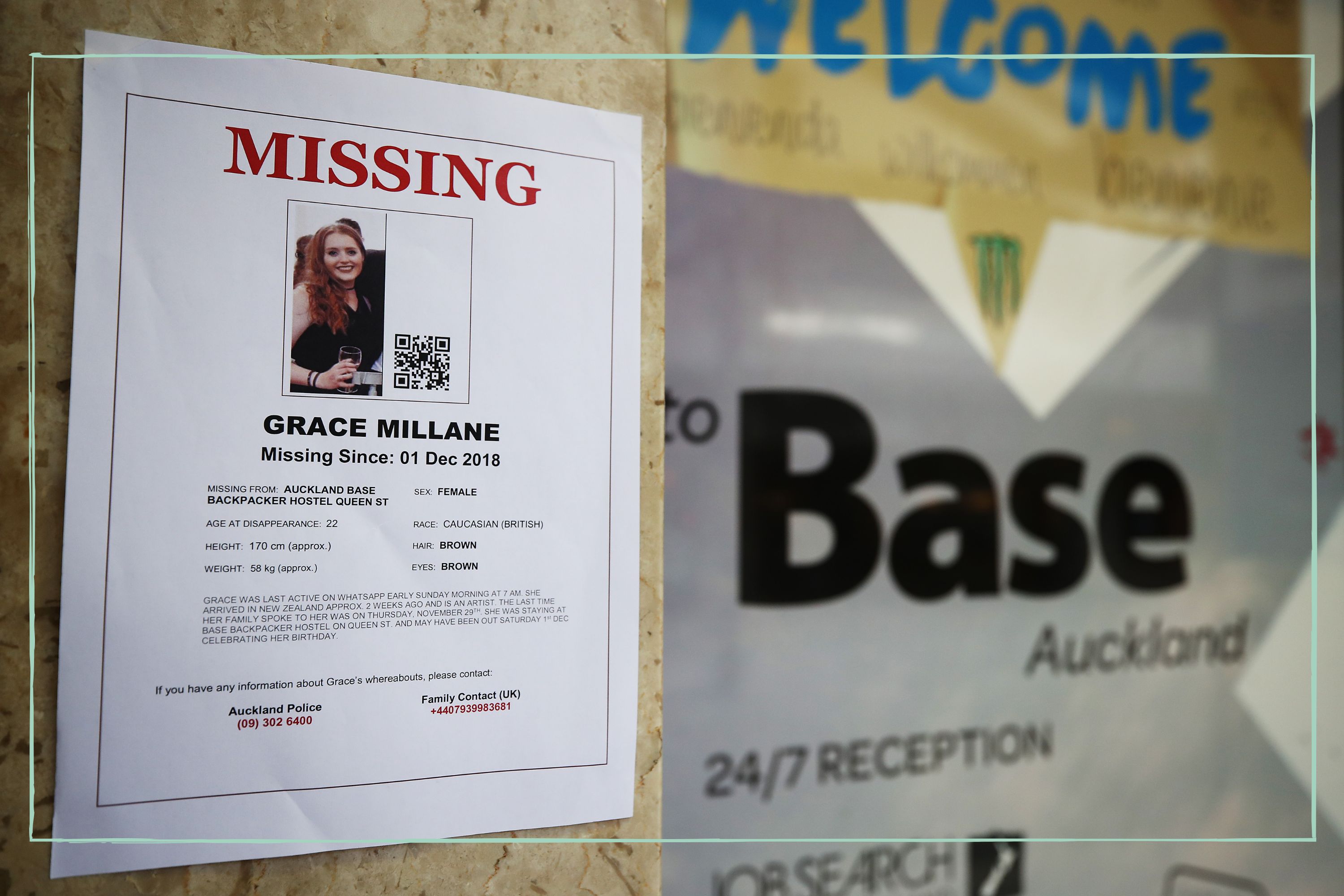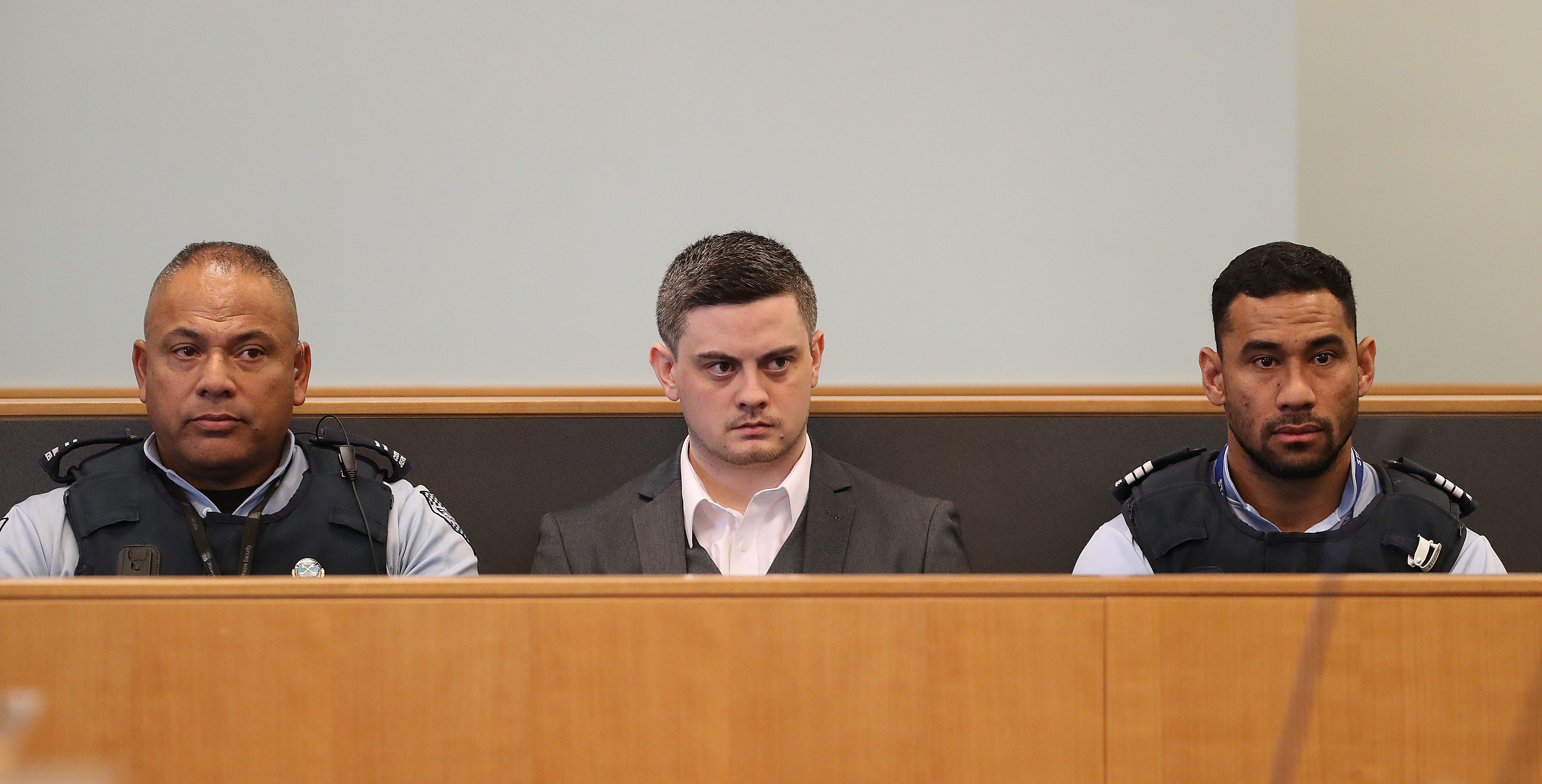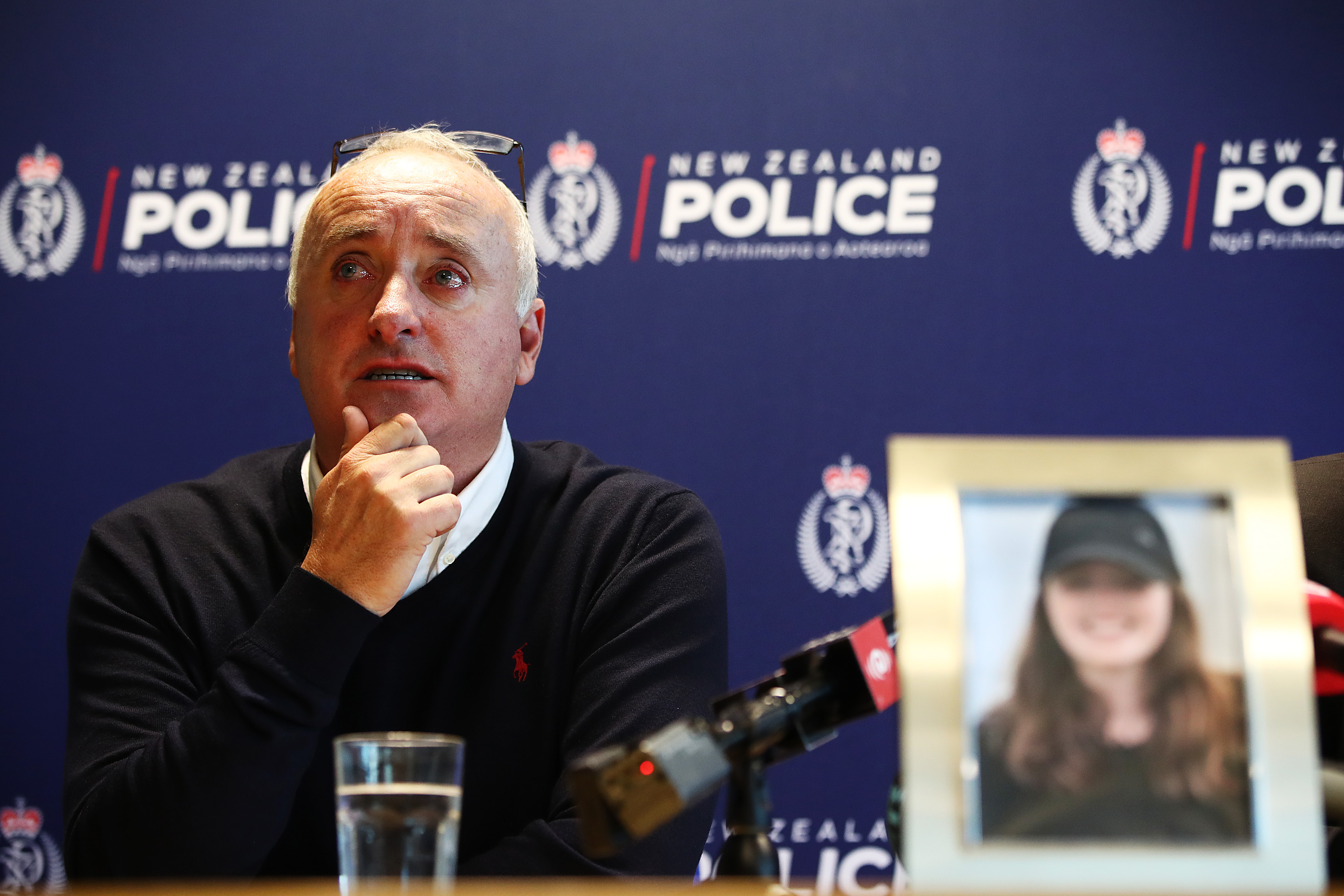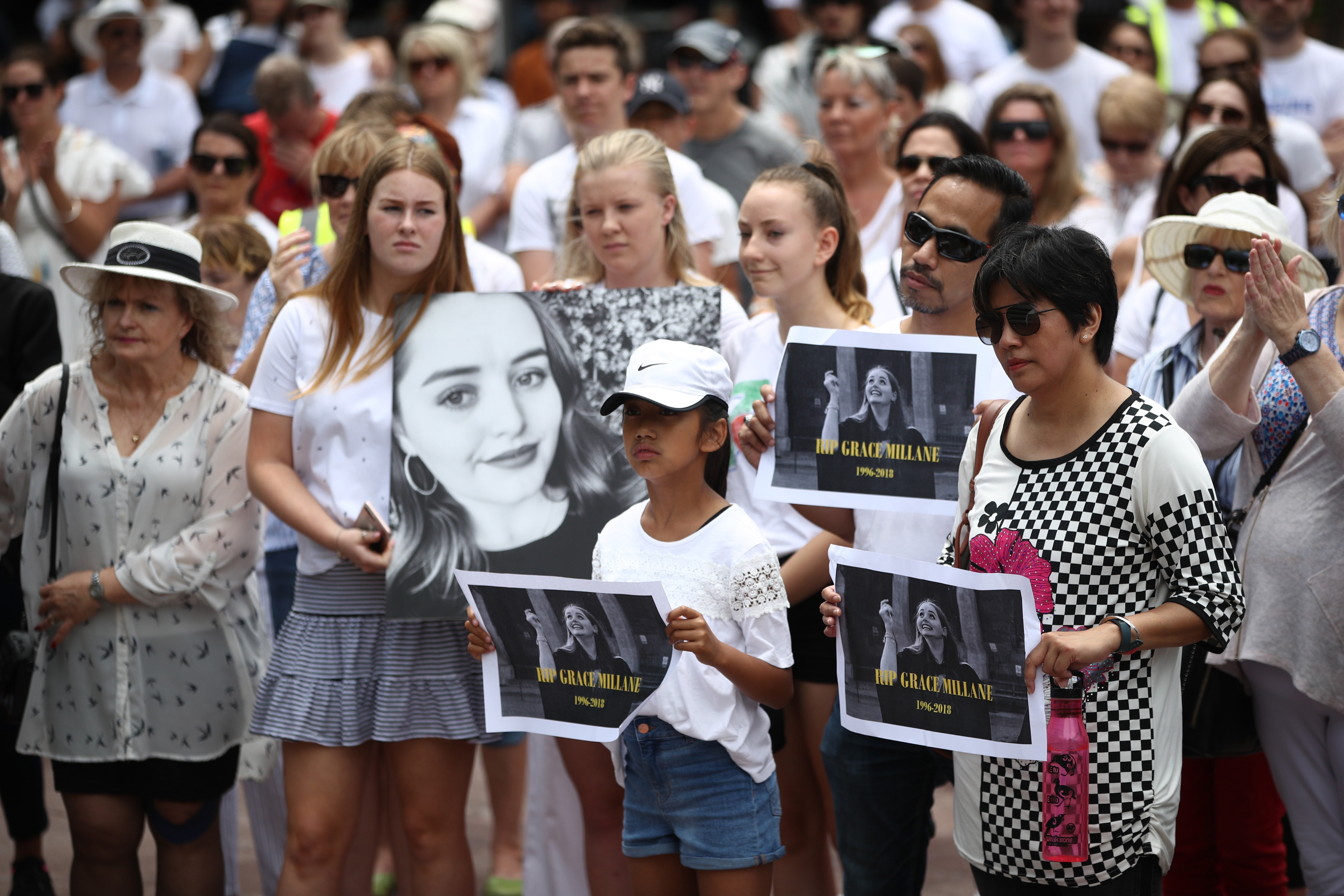The Murder of Grace Millane: How did she die and where is Jesse Kempson now?
The 21-year-old was murdered in 2018


The murder of Grace Millane shook the world back in 2018 and led to the elimination of the 'rough sex defence' in UK law.
Grace Millane was just 21-years-old when she was murdered in New Zealand in 2018. Her case is the subject of an ITV documentary called Social Media Murders, which looks at the role social media played in bringing together the culprit and the victim. Other episodes of the documentary look at the cases of Molly McLaren, who was murdered by her ex-boyfriend, and schoolboy Alex Rodda, who was groomed. The episode exploring the case of Grace Millane airs on ITV on Wednesday 10 August.
But it's not just ITV that has been delving into the world of true crime. The Social Media Murders is one of many documentaries that have exposed shocking criminal cases in recent months. Channel 5 left people asking where is Ian Huntley now? and where is Sion Jenkins now after recent documentaries, while Channel 4 told all about Ghislaine Maxwell and her connection to Jeffrey Epstein. So, it's no surprise that viewers want to know more about the murder of Grace Millane and the whereabouts of her killer, Jesse Kempson.
How did Grace Millane die?
Grace Millane was murderd by Jesse Kempson while they were on a Tinder date together. Millane was in New Zealand at the time, as part of a solo travelling trip she had set off on shortly after graduating from the University of Lincoln.
After returning to Kempson's hotel room together just before 10pm on December 1 2018, Millane was murdered. It's not known exactly what happened in the hotel room, but after her body was discovered, just over a week later, it was determined that Millane had been strangled, and bruises on her body were consistent with being restrained.
Grace Millane, 22Auckland, NZGrace, from Essex, had just graduated & was travelling the world.She was killed on her birthday by a Tinder date. In his trial, he is claiming she asked him to strangle her.She is the 59th UK woman killed by a man who claims sex, "gone wrong" pic.twitter.com/aneETv3bdgNovember 6, 2019
Kempson was later caught on CCTV leaving the hotel room with a porter's trolley, which was carrying two suitcases. Information taken from Kempson's phone showed that he had been searching online for information that would help him cover up the murder in the hours immediately afterwards.
The search for Grace Millane
Grace Millane's parents raised the alarm after they received no response to the birthday wishes they sent her on December 2 2018. Millane's Tinder date with Kempson had taken place the night before, on the eve of her 22nd birthday.
Parenting advice, hot topics, best buys and family finance tips delivered straight to your inbox.
She was last seen on CCTV around 9.40pm on December 1 2018, going into the hotel that Kempson was living in. The pair were arm in arm as they approached the hotel, and earlier had been seen kissing in a nearby bar in Auckland.
Millane's family had described their loss of contact as 'completely out of character' and reported her missing three days after her birthday, which caused the police to launch what was initially a missing person's investigation.
Jesse Kempson was first approached by police after they discovered he was the last person to post on Millane's Facebook page.
When was Grace Millane found?
Grace Millane's body was found on December 9 2018, in a suitcase that Jesse Kempson had buried in a wooded area outside Auckland.
Police had taken Kempson into custody the day before, after he had been identified him as a prime suspect in the case. His second formal interview with the police took place on 8 December and it was then that he admitted to murdering Millane. However, he claimed that Millane's death had been accidental after the two of them engaged in rough sex.
In his initial police interview, Kempson had told police that he and Millane had parted after their date at around 10pm, and that was the last time he saw her. He became a suspect after the CCTV evidence contradicted his version of events.
In the hours after Kempson murdered Millane, he had Googled 'Waitākere Ranges' on his phone - the area where Grace's body was found.

Grace Millane trial
The murder trial began in Auckland on November 4 2019. Kempson was convicted of murder on 22 November 2019, when he was 27 years old.
During the trial, Kempson claimed that Millane had asked him to choke her during intercourse, and his lawyers argued she had died during rough sex after consensual choking went wrong. This defence was widely criticised at the time of the trial.
According to The Sun, Millane would have recovered if the pressure on her neck had been released in the five to 10 minutes it had taken her to die. The crown prosecutor in the case, Brian Dickey, said "This isn’t a little bit of sex gone wrong. There is powerful evidence in this case that Grace was murdered … because the person doing that must have known that they were hurting her, causing her harm, that might well cause her death, but they were reckless and carried on, and she died."
He added: "This case is about being strangled to death. You can’t consent to your own murder."
Where is Jesse Kempson now?
Jesse Kempson is serving time at Auckland prison, after receiving a 17-year minimum sentence for the murder of Grace Millane. He was sentenced to a further 11 years in 2020 after being convicted of attacking two more women.
He met both the other women on Tinder - the same way he met Millane - and in October 2020 was convicted of eight charges relating to various attacks, including using a knife against a woman between November 2016 and April 2017. He was convicted by a separate judge sitting alone of raping another woman on a date in April 2018.
Initially, Kempson could not be named by the media because of a court order banning his identification due to the other two trials he was facing. The court order was in place to avoid biasing the judge in the following cases and allow for a fair trial. The ban was lifted in 2020, following his final conviction.
In a statement, the Millane family said the suppression of Kempson's name had "allowed people to remember Grace - a young, vibrant girl who set out to see the world, instead of the man who took her life. To use his name shows we care and gives him the notoriety he seeks.
"We instead choose to speak Grace's name."
Sadly, just a month before Kempson's name was released to the public, Grace Millane's father, David, died after a battle with cancer.

Kempson's additional 11-year jail term will be served concurrently with his sentence for Grace Millane's murder. He has previously tried to appeal against his conviction and sentence for the murder of Millane, but this was dismissed in December 2020.
What is the rough sex defence?
The rough sex defence could be used by defendants in cases of sexual violence to explain why the violence has occurred, and it often results in reduced sentencing.
Campaign group We Can't Consent to This said use of the defence resulted in "lesser charge of manslaughter, a lighter sentence or the death not being investigated as a crime at all," in 45% of the cases it had been used in.
The defence (also sometimes called the '50 shades' defence) gained a lot of attention during Kempson's trial, because he and his lawyers used the it to explain Millane's death.
However, the law has moved in the right direction since. In July 2020, MPs in the UK voted in favour of including a provision against the rough sex defence in the Domestic Abuse Bill. The Bill has since become an Act - meaning it is now law - and section 71 outlines that "Consent to serious harm for sexual gratification [is] not a defence."

Speaking to the BBC in June 2020, Grace Millane's cousin Hannah O'Callaghan spoke about the upcoming change in law. She said "It won't change things for us but hopefully it will stop any other family having to go through this.
"Men must not be allowed to use this defence as an excuse to kill women, knowing they can get a lesser sentence. Families won't have to sit and listen to only one side of the story while the victim is re-victimised and does not get the chance to tell their side."
Video of the Week

Ellie is GoodtoKnow’s Family News Editor and covers all the latest trends in the parenting world - from relationship advice and baby names to wellbeing and self-care ideas for busy mums. Ellie is also an NCTJ-qualified journalist and has a distinction in MA Magazine Journalism from Nottingham Trent University and a first-class degree in Journalism from Cardiff University. Previously, Ellie has worked with BBC Good Food, The Big Issue, and the Nottingham Post, as well as freelancing as an arts and entertainment writer alongside her studies. When she’s not got her nose in a book, you’ll probably find Ellie jogging around her local park, indulging in an insta-worthy restaurant, or watching Netflix’s newest true crime documentary.